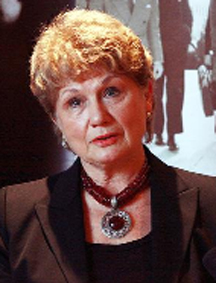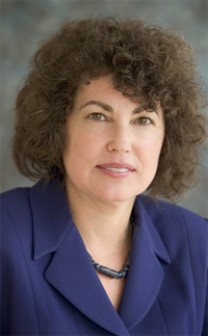By Oluatoyin Alleyne in Washington DC
One in every three women in the world experience or are exposed to gender-based violence and for this growing problem to be addressed holistically women must have economic empowerment, Chief of Staff of the US State Department Office of Global Women’s Issues, Anita Botti, says.
Botti, addressing a number of Caribbean journalists at the US State Department in Washington DC, quoted a World Bank report which stated that all of the Caribbean islands have higher rates of sexual violence than the rest of the world.
She however admitted that while gender-based violence is a big problem in the Caribbean it is not exclusive to this region.
Botti’s involvement with the State Department dates back to 1985 and she has a long history of working on women’s rights and other issues in the US and other parts of the world.

“For us when we talk about gender-based violence, it is a pretty broad area because we are talking about it globally…,” Botti said.
She also told the journalists — ten women and one man — who are on a five-day Women’s Empowerment Reporting Tour, that while many times it is violence against women to effectively combat the problem the involvement of men and children is critical or it “doesn’t get better”. And while laws are important the will to implement the law is equally important.
“Women are not victims, they are incredible and very resourceful and as such the office has put in place a strategy that focuses on political participation, economic empowerment and combating gender-based violence,” Botti said.
Botti said women in politics are critical and that there is need for more women in decision-making to address gender-based violence and economic empowerment.
“Because [the two issues] go hand in hand, they don’t always appear that way…but I can assure you, I am old I have worked on the trafficking, the policy and the legislation; I am here to tell that until you raise that part of the ledger, the way to giving women options whether it is economic options, options over their ability to have healthy families, to be educated they will not have the choice in some cases,” she said.
She pointed out that gender-based violence is presented differently in different parts of the world but the most common is domestic violence.
“Domestic violence is not new to any part of the world and certainly in this country…we spent 20 years in this country to get a domestic violence law,” she revealed.

Like in many parts of the world the issue was considered private, Botti said. It was not until people like attorney generals were having to stay the executions of women and children that they realized that no one listened to the cries for help and the victims of domestic violence took the law into their own hands.
The law comes up for renewal every three years and each time changes are made to include other areas. In the US the offenders is charged even if the victim declines to press charges.
Gender is now being put into US foreign policy and the guidance for this now being written.
This is a new area introduced by US Secretary of State Hilary Clinton, who, Botti said, has been a “champion on women issues”.
Meanwhile, Lynn Rosenthal, the White House Advisor on Violence Against Women, who addressed the journalists at the State Department’s Foreign Press Centre (FPC), said a new survey had revealed that one in five women in the US are victims of rape, which is equal to 18 million women.
The majority of the victims are below the age of 25.
“One in three women in the US will be victims of rape, physical violence or stalking at some time in an intimate partner relationship and one in four women will be victims of severe physical violence,” Rosenthal said.
She said the numbers are still “startling high” and to reach out to young women who are victims they had to develop a strategy to use technology for them to seek help.
“So we expanded our national dating helpline to be available 24 hours a day by text message, by internet chat and by phone,” she said adding that it was a big accomplishment for the US.
A challenge was also thrown out to technology inventors to figure out ways to reach people with messages about dating violence and sexual assaults.
Data collection is also a problem in the US as sexual violence is under reported. It was found that the definition for rape used by the police was in place since 1929 and Rosenthal said it had to be recently updated to include other acts such as rapes on men and boys; all of this will be implemented in the next three years.
She said that the advocacy groups have been asking for these changes for the past ten years.
The Women’s Empowerment Reporting Tour is organized by the US State Department’s FPC in conjunction with the State Department’s Bureau of Western Hemisphere Affairs. The aim of tour, which starts in Washington and ends in Atlanta, is to demonstrate US leadership in combating domestic violence, show grassroots efforts to empower women socially and economically and also to discuss tactics for developing programmes to help women.
The journalists will be able to sit in on some of workshops that form part of the 2nd World Conference of Women’s Shelters which brings together shelter advocates and grassroots activists working to end violence against women to discuss how they can support and learn from each other.
One of the highlights of the tour is a visit to a shelter for women victims of gender-based violence in Atlanta.
Journalists on the tour are from Jamaica, Trinidad & Tobago, the Bahamas, Guyana, Suriname, Antigua and Suriname.




